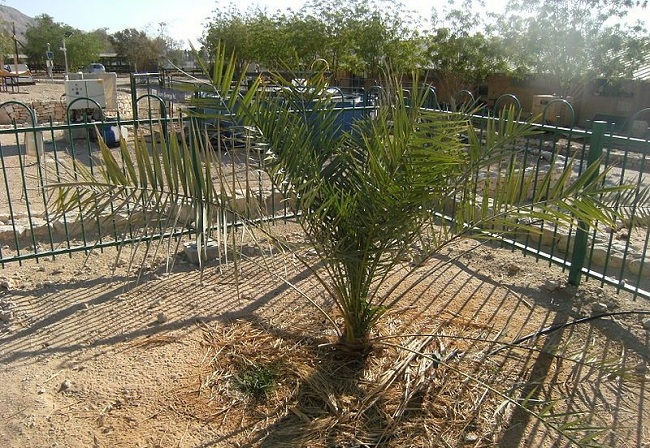For thousands of years, Judean date palm trees were one of the most recognizable and welcome sights for people living in the Middle East — widely cultivated throughout the region for their sweet fruit, and for the cool shade they offered from the blazing desert sun.
However, over the centuries, things changed. The climate changed and the cities grew, crowding out space for the trees to grow. Later, the devastation of wars wiped out palm plantations. By the 1300s, the Judean date palm was extinct.
In the 1960s, archaeologists uncovered a small clay pot full of date seeds from the massive palace and temple complex of King Herod in Masada, Israel. For the next four decades, the ancient seeds were kept in a drawer at Tel Aviv’s Bar-Ilan University. But then, in 2005, botanical researcher Elaine Solowey decided to plant one and see what, if anything, would sprout.
“I assumed the food in the seed would be no good after all that time,” she said. “How could it be?”
To make sure the dates really were ancient, they were radiocarbon tested, and the seeds turned out to be between 1,995 and 2,110 years old.
To everyone’s shock, the seeds sprouted eight weeks later. And it kept growing producing a sapling no one had seen in centuries, becoming the oldest known tree seed to germinate.
The tree is a male tree, unable to produce fruit, so now researchers are working on sprouting a female from the same batch of seeds, so Methuselah (as he’s been dubbed) can pollinate her.
After doing some genetics testing, Solowey and her team discovered that Methuselah is closely related to an old Egyptian varietal called a Hayany that still grows today.
See also: Date palm grown from 2,000-year-old seed is a dad
Source: www.treehugger.com

